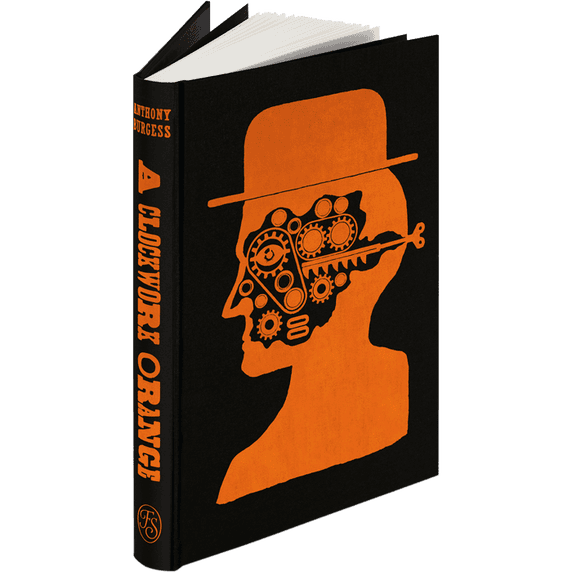
One of the most important books of the 20th century, Anthony Burgess’s A Clockwork Orange is presented as a stunning Folio edition that includes an exclusive introduction by Irvine Welsh.
Illustrated by Nicole Rifkin
Introduced by John Sutherland
Choose Trainspotting, the explosive debut of author Irvine Welsh, as Folio celebrates the 30th anniversary of this cult classic with the first illustrated edition ever published.
‘The voice of punk, grown up, grown wiser and grown eloquent ... Welsh writes with a skill, wit and compassion that amounts to genius.’
- The Sunday Times
Choose the book that outraged the critics. Choose the literary phenomenon that defined a generation. Choose Trainspotting by Irvine Welsh. Introduced by critic John Sutherland, the savage picaresque of junkie Mark Renton returns to raise hell in celebration of the novel’s 30th anniversary with its first ever illustrated edition. With kaleidoscopic artwork by award-winning artist Nicole Rifkin, Folio invites you to revisit the book that nailed the hedonistic nineties, that exposed the poetry of a forgotten underclass and inspired the classic 1996 movie. Fearless, anarchic, honest, Trainspotting is a British cultural landmark and remains one of the greatest cult reads of all time.
Bound in printed and blocked cloth
Set in Maxime with Futura as display
400 pages
Frontispiece plus 5 colour illustrations
Die-cut slipcase
9 ½˝ x 6 ¼˝
The international reach of Trainspotting’s cultural influence is evident in the remarkable illustrations by New York artist Nicole Rifkin. Combining graphic-novel style panels, needle-fine linework and sour, muted colours, these remarkable pieces provide the perfect palette for the first ever illustrated edition of Welsh’s groundbreaking debut. The edition’s acid-yellow binding offers a sensitive portrait of Renton, also drawn by Rifkin. The book itself is housed in a Caledonian blue slipcase with mismatched train-track lines. Tapping a vein somewhere between the dour Scottish realism of James Kelman and the stoned lyricism of Burroughs and Bukowski, Welsh weaves his own sour melody of language, moral outrage, and gallows humour. Introduced by academic and Guardian columnist John Sutherland, this landmark Folio edition deserves pride of place in any counterculture library.
‘One of the easiest and most common mistakes made about Trainspotting is people regarding it as a work of literary primitivism. It is, in fact, a highly crafted work of fiction.’
- John Sutherland, from his introduction
The story of a gang of noxious young males communicating in their own vernacular, Trainspotting was inspired by Anthony Burgess’s A Clockwork Orange, relocating that sci-fi dystopia to the slums of Northern Edinburgh. Mark Renton is our wry antihero, a terminally jobless twenty-something struggling to escape a Black Hole of heroin addiction orbited by a cast of equally vivid characters: the lecherous Sick Boy, alcoholic maniac Francis Begbie, and the gang’s furtive whipping-boy, Spud. Trainspotting was a word-of-mouth sensation upon publication in 1993, though its unique dialect, humour, and equitable stance on drug use baffled and offended the literary community in equal measure. Though set in the late eighties, the book tapped into the nascent rave culture that was emerging in the early nineties. Readers were hooked by the furious authenticity that Welsh drew from his own former drug addiction and his upbringing in the “schemes” of Edinburgh. Welsh is just as interested in playing with linguistics, as well as themes of alienation and redemption as Renton pursues a darkly impulsive quest for his next fix.

